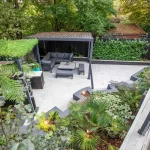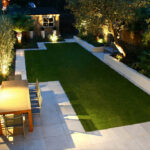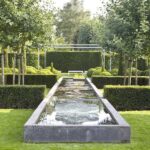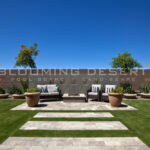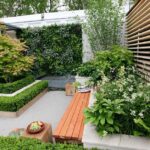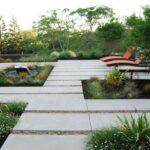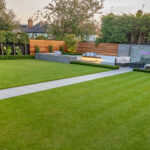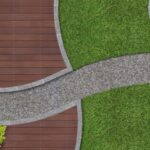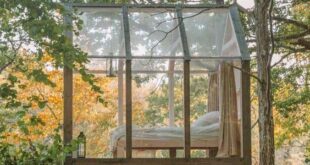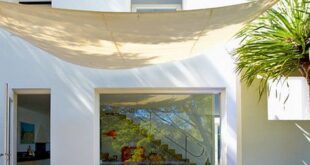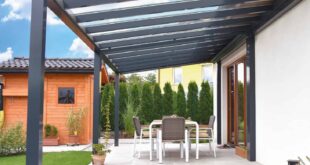Contemporary garden design has become increasingly popular in recent years, as homeowners seek to create outdoor spaces that are not only beautiful but also functional and sustainable. This style of garden design emphasizes clean lines, minimalism, and the use of natural materials.
One of the key elements of contemporary garden design is the use of geometric shapes and patterns. Rectangular or square-shaped beds, pathways, and seating areas are common features in contemporary gardens, giving them a modern and organized look. This style also often incorporates elements such as retaining walls, pergolas, and water features to add interest and depth to the garden.
In terms of plant selection, contemporary garden design favors a more minimalist approach. Plants are carefully chosen for their shape, texture, and color, and are often arranged in large groups or rows to create a sense of unity and coherence in the garden. Grasses, succulents, and other low-maintenance plants are popular choices for contemporary gardens, as they require minimal upkeep and can thrive in a variety of climates.
Contemporary garden design also places a strong emphasis on sustainability and eco-friendliness. Many contemporary gardens incorporate features such as rainwater harvesting systems, permeable paving, and native plantings to reduce water usage and minimize environmental impact. Additionally, many homeowners are choosing to incorporate edible plants and fruit trees into their contemporary gardens, creating a more self-sufficient and sustainable outdoor space.
When it comes to materials, contemporary garden design often incorporates a mix of natural and man-made elements. Stone, wood, and metal are popular choices for hardscaping, while corrugated steel, glass, and concrete are often used for structures and accents. This blend of materials creates a sense of contrast and balance in the garden, adding visual interest and texture to the overall design.
Overall, contemporary garden design offers a fresh and modern approach to outdoor spaces, combining clean lines, sustainable practices, and a minimalist aesthetic to create beautiful and functional gardens. Whether you’re looking to create a peaceful retreat, a social gathering space, or a productive food garden, contemporary garden design offers endless possibilities for creating a unique and stylish outdoor oasis.


